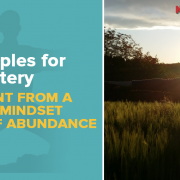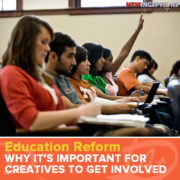Self Fulfillment: The Secret to True Success
In our world today, we’re often seen as doing the right thing when we’re seeking success. I mean, why not? On the surface, success seems like the perfect way to measure someone’s value to society. The more success someone has had at doing a particular thing, the more likely they’ll be able to teach someone else to do the same thing.
Right?
Well, perhaps.
See when I think of the word success, I think of it more as a label coming from external sources. Someone else has told me I’m successful. Whether by a simple compliment or by getting my degrees in college, it’s been someone else telling me that I’m a success.
On that same note, I’d really only say I’m successful when I achieve goals that I set for myself.
However, as much of a good feeling I had when I got my Masters, it was short lived.
The hard reality set in that I hadn’t been really setting my own goals. Others had put emphasize on what I should be pursuing. When I achieved that, I asked “What now?”.
It took me a good several years to truly figure out the answer to that.
Here’s what I’ve realized.
Modern Success is Superficial
Since our success is usually measured by other people, it’s probably not the best measurement for ourselves and navigating our own personal journey.
Take, for example, your typical “successful” professional athlete. On the outside, they seem to have it all. Many have a job that pays super well (the low end is $100k/yr for NFL players), and because of that, they should have a cushy lifestyle compared with the rest of us.
They should be set for life.
As we know, this isn’t always the case. For some people who go the professional athlete route, their money goes as quick as it comes in. Or they get injured on the job and are unable to perform at the same level. For those folks, they’re not considered any more a success in life when they end their career vs when they got started.
So maybe there’s another way to measure success?
Well, in professional sports, we can say that a player has had a successful career if they have had great stats over a certain amount of time.
But, from their perspective, good players tend to not really care about padding stats. They simply want to be considered great at what they do. It just so happens that good stats in professional sports usually means someone’s really at their craft – playing their sport.
Thing is, not all professions have these measurements of greatness built in. In fact, most don’t.
So, the question is, how do we measure our greatness?
Greatness comes through Mastery
Those professional athletes could not have the stats that they had without seeking mastery in their craft. If you have two people with the same level of talent, who will come out ahead? The one who works on their craft day in and day out? Or the one who just tries to wing it?
In sports, we see this time and again. The players who study film and go through the reps in practice are going to be more successful than those who don’t.
Same is true about the rest of us.
Those of us who improve in our craft a little more each day are going to eventually get better than those who just do the same thing as a hobby.
As we work towards this mastery, the better we get at something, the more we’ll be fulfilled.
So, if that’s the case, the more fulfillment we get from doing something, the more potential we have to be great at something. If we don’t get fulfillment from doing something, then there’s most certainly going to be a cap in how great we’ll be able to make ourselves at it.
Action Steps
So as you’re thinking about this new definition of “success” and how importance true fulfillment is, perhaps we can think of it in simple terms. Here are a few questions to ask yourself.
How many things are you currently doing or have done because you wanted the reward at the end? Compare that to the activities you do because you truly want to get better at that particular craft or process. Which percentage is higher?
If money or stuff wasn’t a measurement of true success (because it isn’t), what would you be doing as a career? Are you currently at your job because it pays the bills? If so, it might be time to consider a change.
And finally, since we measure true success by the fulfillment we get out of what we put our effort into (and not through the view of others), are there any specific ways you can measure your current fulfillment – whether it’s in your work or through making yourself a better person?
Personally, knowing how many people I’ve helped live a better life helps gives me fulfillment.
Perhaps you can measure your success through that scale?
Or maybe, you can track your success based on something completely different – such as how well you can play an instrument or how much you’ve improved your health over time. Heck, maybe it’s something like how well you can speak a language.








